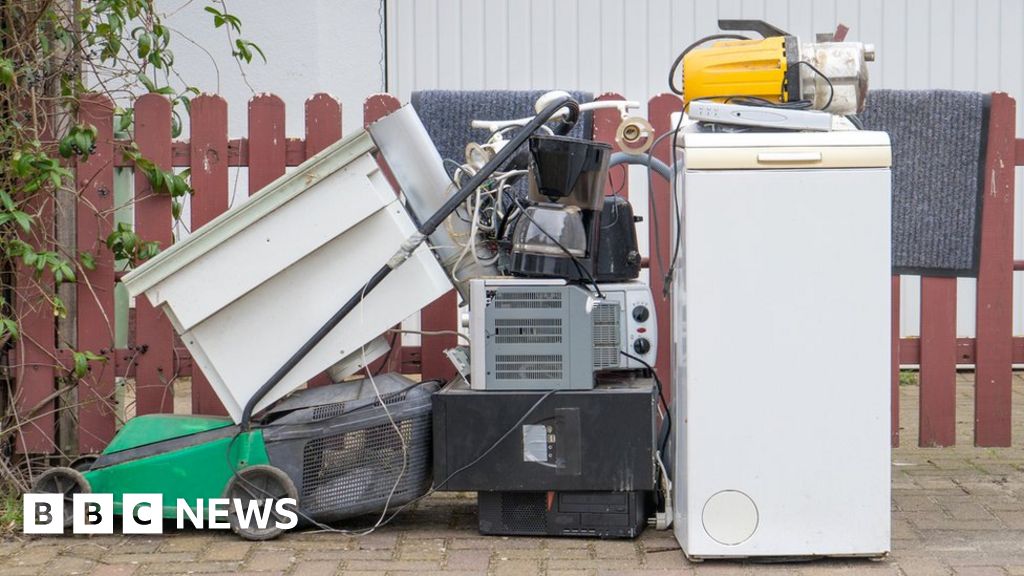Kerbside collections for small electrical goods such as toasters and hairdryers could be rolled out across the UK from 2026 under government proposals to boost recycling.
Ministers are also considering drop-off points in retailers where households can recycle unwanted items for free.
And shops and online sellers would be made to pick up unwanted or broken larger electrical items such as fridges when delivering replacements.
A 10-week consultation is taking place.



you’re going to see it in the final cost of the products though, which to be clear isn’t a bad thing, but it’s extremely disingenuous to act like there’s no end cost to consumers when the companies are definitely going to pass that on. language like this tries to obscure that fact: it’s actually true, but people take “the taxpayer” to mean “I won’t pay more” but you certainly will.
I think this is a great idea and an important thing to do, but stop babying people about the costs: things cost money, and buying things that are difficult to dispose of has consequences that need to be dealt with, don’t try to hide it.
my actual biggest wish, which I will never get because the administrative costs would be astronomical, is that the cost added to goods be directly tied to their recyclability (both in materials and labor) as it would incentivize building more easily recycled products by manufacturers to keep costs competitive.
What about the reduction in costs from having to collect flytipping of items down countryside lanes? That could offset.
that’s a good point, I would love it to work out that way. I’m not super optimistic (esp since electronics aren’t the things I typically see, but that’s just my experience/bias), but it could help.
Interesting point. I guess the price of the individual product won’t be differentiated based on cost of recycling, but there will still be an incentive for retailers and therefore manufacturers to make products last longer, which might be better in the long run?
yeah I don’t know; I imagine the per-unit cost of this will be pretty low in the end, and won’t incentivize much change at all to the products since it’ll be a fraction of the cost, but I would love to be wrong: things that last longer and are supported longer are obviously the best choice, and feel in very short supply. but something is changing: look at the Android phones from Google and Samsung which have seen a tremendous increase in support length; that’s (probably?) due to consumer demand and government pressures, so yeah it might matter in the end.